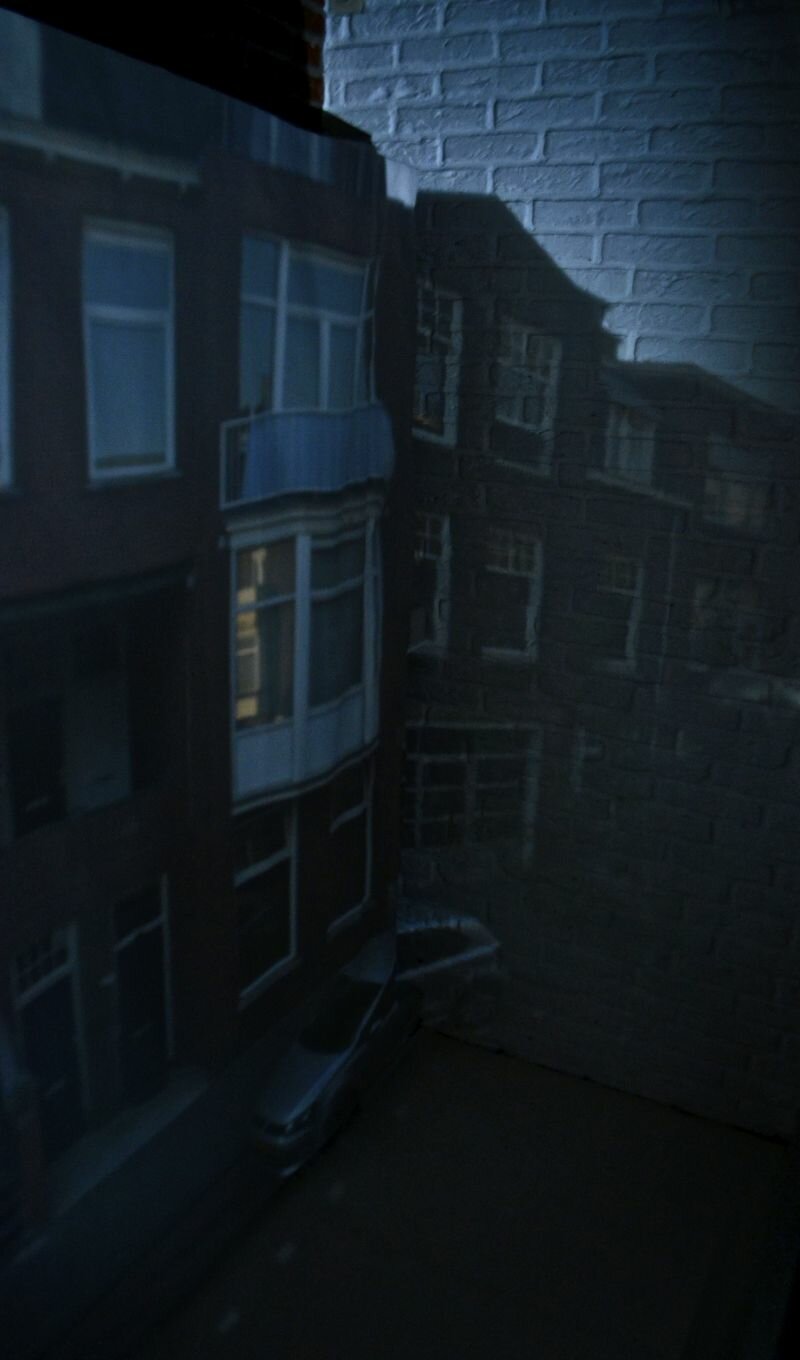
The camera obscura is a strange and almost magical natural phenomenon where an image is created by simply passing light through a small hole into a darkened space. Where the light is cast, an image of the outside world is projected in full colour, upside down, but with all sense of depth and perspective preserved. In the summer of 2013, Teun Verheij transformed his student room into a giant camera obscura:

In the morning, I'm sitting amidst cartoonish clouds that languidly crawl over the floor. It is surprisingly light, and silent now that the fire alarm has stopped wreaking havoc. The agricultural plastic gathers all the street's heat and focalises it, bundles it into a straight, narrow beam that makes a small hot sun in between the clouds. No wind can find me here, only its shadow, which makes the leaves quiver on the trees that hang from a concrete sky. As a consequence, I have been cooking alive now for weeks but it is worth it- I love the big yellow van that is patrolling my ceiling as we speak, the playing children, the bikers looking unbearably fragile- but no fancy pictures for your hungry eyes, because with a long exposure time anyone can make it look like quite something. It is a form of cheating, exhilarating and rewarding but ultimately unsatisfying. Photographing inside is like brain-scanning a square-skulled cyclops, or taking a picture within a picture.
Instead, stay there a while, sleep in there, wake up in there. It is like living in a theatre alone while ghosts of the outside world perform their daily haunting play, oblivious to you. Yet it is completely unlike hidden cameras or spying - what you are watching is already recycled, already filtered by the one eye before you see it. It covers up more secrets than it cares to disclose.
The camera obscura is a philosophical can of worms, yet the usual suspects of comparison (Plato's cave, the Cartesian theatre, psychoanalytical and feminist accounts of the Male Gaze, even surveillance theory's wilder excursions, let alone the entire shelves written on the more ''obscure" aspect of photography) make me feel nauseous even thinking about them. What's more, I think they miss the point somehow. The magic of the camera obscura is hardly the stuff of books, yet it isn't mere optics either.
I can see a seagull lost in the area between the couch and the bookshelves, and I think of nothing at all.